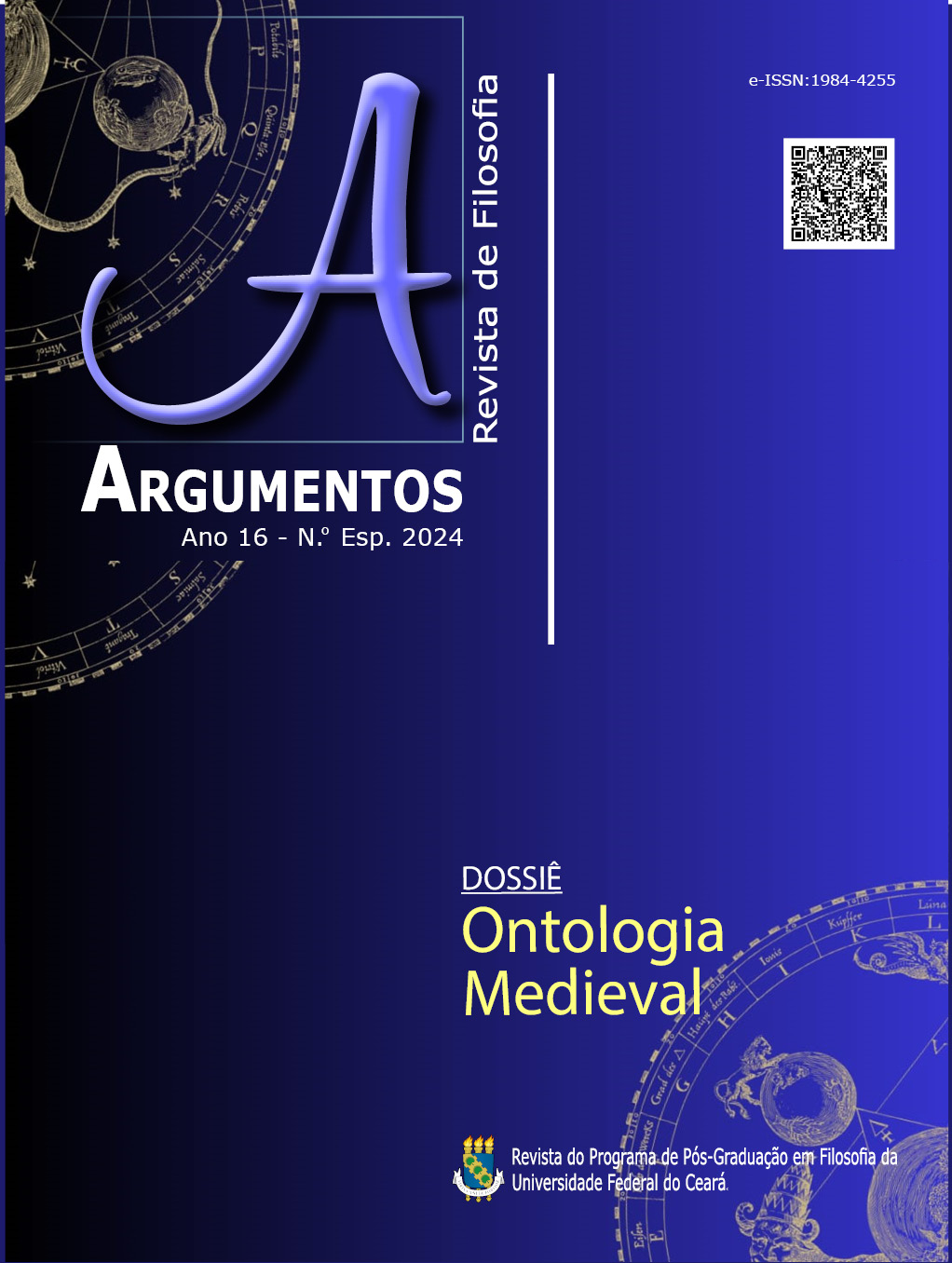Structuralism or not-structuralism? Homage to Oswaldo Porchat
Keywords:
Structuralism. Method. Non-structuralism. Skepticism. History of Philosophy in Brazil.Abstract
This paper originates in a comment made by late Professor Oswaldo Porchat Pereira, about the alternative structuralism x non-structuralism. The paper tries to examine the pros and cons of structuralism as a method of research in Philosophy, and also the limitations it can put
on the free philosophical thinking. In the first part, it examines the emblematic paper by Victor Goldschmidt, “Temps historique et temps logique dans l’interprétation des systèmes philosophiques”, a kind of “manifesto” of the structuralism in Philosophy. In the second part, it makes some criticisms to this method, taking as a point of depart the paper by Porchat “Speech to the students about research in the field of Philosophy” (PEREIRA, 2010). In the conclusion, it makes an evaluation of the debate, trying to get a stand face the dilemma put by Pereira: structuralism or not-structuralism?
References
BLOOM, H. A anatomia da influência. Trad. Renata Telles. Rio de Janeiro: Objetiva, 2013.
DESCARTES, R. Oeuvres et lettres. Paris: Gallimard, 1953. (Col. Bibliothèque de la Pléiade).
DOMINGUES, I. Foucault, a Arqueologia e As palavras e as coisas – 50 anos depois. Belo Horizonte: Humanitas, 2023.
DOSSE, F. A história à prova do tempo – Da história em migalhas ao resgate do sentido. 2. ed. rev. Trad. Ivone Castilho Benedetti. São Paulo: Ed. UNESP, 2017.
DOSSE, F. História do estruturalismo. Trad. Álvaro Cabral. São Paulo: Ensaio, 1994.
FOUCAULT, M. As palavras e as coisas. Trad. Salma Tannus Muchail. 6. ed. São Paulo: Martins Fontes, 1992.
GOLDSCHMIDT, V. A religião de Platão. Trad. Ieda Porchat Pereira e Oswaldo Porchat Pereira. São Paulo: DIFEL, 1966.
GOLDSCHMIDT, V. Os diálogos de Platão: estrutura e método dialético. 3. ed. Trad. brasileira. São Paulo: Loyola, 2002.
GOLDSCHMIDT, V. Temps historique et temps logique dans l’interprétation des systèmes philosophiques. Proceedings of the XIth International Congress of Philosophy, v. 12, 1953, p. 7-13. Disponível em: https://www.pdcnet.org/wcp11/content/wcp11_1953XII_0007_0013. Acesso em: 22 maio 2024.
GUÉROULT, M. Análise de estruturas como método de leitura das obras filosóficas. Entrevista radiofônica cedida a M.-C. Pernot, nos dias 20 e 27 de maio de 1970. Trad. Ivan Domingues. Texto cedido pelo tradutor.
GUÉROULT, M. Descartes segundo a ordem das razões. Trad. Érico Andrade et. al. São Paulo: Discurso Editorial, 2016.
PEREIRA, O. P. Discurso aos estudantes sobre a pesquisa em filosofia. Revista Fundamento, Ouro Preto, v. 1, n. 1, set./dez. 2010, p. 18-33.
PEREIRA, O. P.; PRADO JR. B.; FERRAZ, T. S. A filosofia e a visão comum do mundo. São Paulo: Brasiliense, 1981.
PRADO JR., B. Leitura e interrogação: uma aula de 1966. Dissenso, v. 1, 1997, p. 155-171.
SARTRE, J.-P. Crítica da razão dialética. Trad. Guilherme João de Freitas Teixeira. Rio de Janeiro: DP&A, 2002.
Downloads
Published
Issue
Section
License
Copyright (c) 2024 Luiz Paulo Rouanet

This work is licensed under a Creative Commons Attribution 4.0 International License.
Argumentos magazine is licensed under an International Creative Commons Attribution License.
The Magazine uses CC BY inclusion
1) The authors retain the copyright granted to the magazine or the right to initial publication, with the work regularly licensed under the Creative Commons Attribution, which allows the sharing of the work with acknowledgment of authorship and initial publication in this magazine.
2) The authors are authorized to contract additional applicable contracts, for non-exclusive distribution of the version of the work published in this journal (for example, publication in the institutional repository or as a chapter of the book), recognition of authorship and initial publication in this journal.
3) Authors are authorized and encourage to publish and distribute their work online (for example, in institutional repositories or on their personal pages) at any time before or during the editorial process, as they can generate productive changes, as well as increase the impact and reference of published work.




.jpg)










._._3.png)
1.jpg)
._._._.png)
